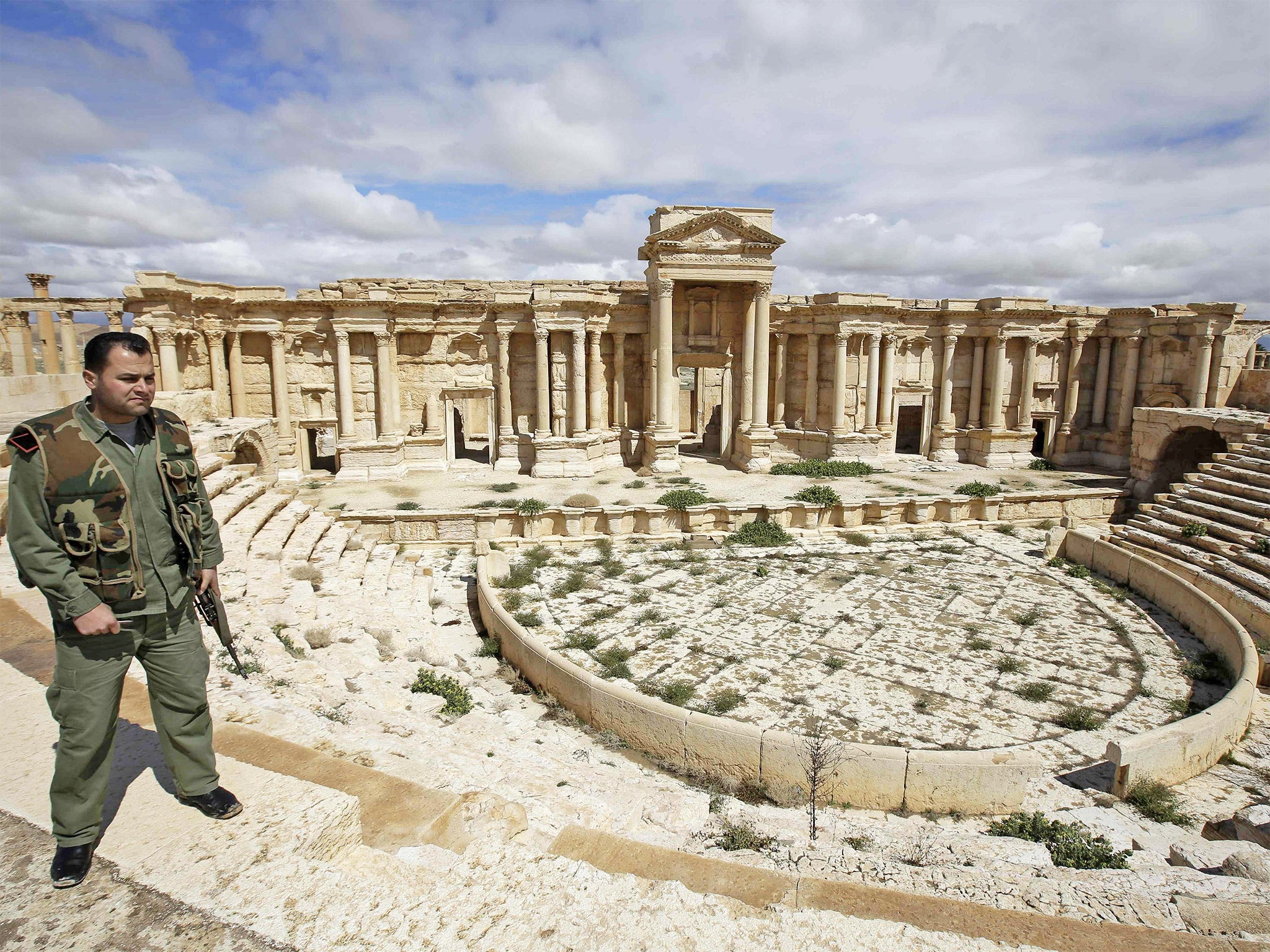Syria civil war: Government troops set to retake ancient city of Palmyra from Isis
With support from Russian air strikes and Hezbollah, President Assad's forces are said to be just over a mile from the Unesco world heritage site

Forces loyal to President Bashar al-Assad are poised to claim a symbolic victory by retaking the ancient city of Palmyra from Isis.
The jihadist group horrified the world by seizing the Unesco world heritage site last May and proceeding to blow up some of its most treasured monuments.
With the help of Russian air strikes and fighters from the Lebanese Shia militia Hezbollah, Syrian government forces are said to be just over a mile from the town.
In Lebanon, Hezbollah’s television station broadcast footage purportedly showing troops advancing in a single file through the desert landscape that surrounds the city. Helicopter gunships buzzed overhead.
“God willing, within a few hours we will enter and secure the town,” one officer told the Syrian channel Ikhbariya TV, as soldiers chanted in support of President Assad. The station was broadcasting live from a road reportedly on the outskirts of Palmyra, which is known as Tadmur in Arabic.
Among Syrians, the city is perhaps most notorious for Tadmur prison, where thousands of critics of the current president and his father Hafez al-Assad have been imprisoned during the four decades of their combined rule.

After seizing the city, Isis performed a series of stunts designed to gain maximum attention in the West. It destroyed many of the city’s Roman relics, including the 2,000-year-old Temple of Bel and Arch of Triumph.
The group beheaded Khaled al-Asaad, an 82-year-old scholar and expert on the historic site, and strung up his mutilated body in the main square, allegedly because he refused to reveal the location of hidden antiquities. It killed dozens of Syrian soldiers and dissidents, using the Roman amphitheatre as a grim backdrop.
The offensive came as US Secretary of State John Kerry travelled to Moscow in the hope of securing a breakthrough in efforts to end the war in Syria, which has killed at least 270,000 people and forced 11 million from their homes. Russia’s President Vladimir Putin announced last week that his military intervention in Syria had achieved its goals and promised a partial withdrawal of his troops from the country.
However, the decision, which came as a fresh round of peace talks got underway in Geneva, has not delivered the immediate pressure on President Assad that Western diplomats had hoped to see.
UN led talks have crawled along at a painfully slow pace, with the Syrian government delegation refusing to discuss the central issue of a peaceful political transition.
On Thursday, Mr Kerry is scheduled to meet President Putin and his foreign minister, Sergei Lavrov, in the hope of tackling the question of Mr Assad’s future.
Collaboration between Washington and Moscow delivered a ceasefire agreement that has defied expectations by significantly reducing the level of violence in the country.
The truce excludes the al-Qaeda affiliate Jabhat al-Nusra as well as Isis and has allowed pro-government troops to press on with offensives such as the one in Palmyra. Mr Putin has also made clear that Russian support for assaults on those groups will continue.
Join our commenting forum
Join thought-provoking conversations, follow other Independent readers and see their replies
Comments
Bookmark popover
Removed from bookmarks